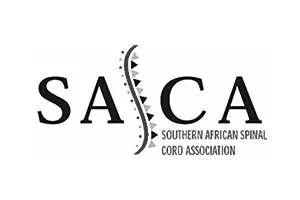Damages Await Women with Pip Breast Implants
Damages Await Women with Pip Breast Implants
Court ruling includes South Africa
South African women who were fitted with the controversial Poly Implant Prosthesis (PIP) breast implants that fuelled worldwide panic in 2011 because of their high rupture rate, have eight months to lodge claims- even if they’ve had no problems.
In return, they could find themselves € 3000 (about R 43 000) richer.
This comes after a recent judgment by the commercial court in Toulon, France, that any woman who has had the PIP implants is entitled to recover an amount of €3000 from the German safety company that certified the product.
The ruling has prompted personal injury law firm Malcolm Lyons Brivik Inc. to call on affected South African women to lodge their claims by the end of the year.
Tzvi Brivik, a partner at the firm who assisted in the litigation in France said “Having had the PIP implants automatically qualifies any woman in South Africa for the compensation. Every patient would receive an implant ID card after breast augmentation surgery which would provide information about the implant’s size and batch number; the surgeon’s name and operation date should also be recorded.”
The cards should be available from the surgeon, who performed the operation, and some women may have received cards on discharge.
He said additional damages could be claimed if women could prove psychological or physical harm as a result of having the implants.
Brivik urged women to act sooner rather than later, saying that lodging a claim took time because women first had to be screened to see if they met the necessary requirements before investigations were conducted to see whether additional damages could be claimed.
Some women had already contacted the firm and, according to Brivik, one seemed to have been physically affected by the implants.
The PIP implants are solid silicone implants filled with inferior industrial- grade silicone that did not meet the stringent quality requirements of medical-grade silicone.
The rupture rate of these implants is at least five times higher than any other type.
Since the manufacturer of PIP was bankrupt and the insurer had denied the validity of the policy it had with the manufacturer, the French Commercial Court held that the certifying body which tested and confirmed the safety of the product was responsible, and should pay the compensation.
More than 1600 women were awarded €3000 in interim damages by the French court, but the judgment is estimated to affect 400 000 women worldwide. The number of South African women is not known.
The scandal broke after inspectors, pursuing a tip-off, discovered vats of industrial – grade silicone outside the PIP factory in 2010.
In December a criminal court in Marseille, France, sentenced the founder of PIP, Jean Claude Mas, to four years in jail for hiding the true nature of the implants.
Mas admitted to using an unapproved home-made recipe.
The current position on objections to the con/arb process
Con/arb process - The Commission for Conciliation, Mediation[...]
Out of time? Think again – The CCMA and its rules
By Lara Keil (Candidate Legal Practitioner) under the[...]
RAF’s lodgement requirements: Claimants further prejudiced
By Lara Keil (Candidate Legal Practitioner) under[...]













